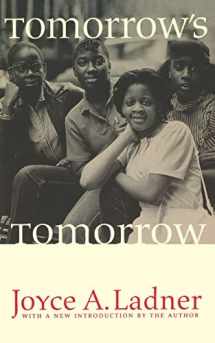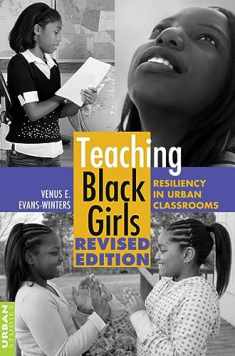
Tomorrow's Tomorrow: The Black Woman
ISBN-13:
9780803279568
ISBN-10:
0803279566
Author:
Joyce A. Ladner
Publication date:
1995
Publisher:
University of Nebraska Press
Format:
Paperback
306 pages
Category:
Specific Demographics
,
Social Sciences
FREE US shipping
Book details
ISBN-13:
9780803279568
ISBN-10:
0803279566
Author:
Joyce A. Ladner
Publication date:
1995
Publisher:
University of Nebraska Press
Format:
Paperback
306 pages
Category:
Specific Demographics
,
Social Sciences
Summary
Tomorrow's Tomorrow: The Black Woman (ISBN-13: 9780803279568 and ISBN-10: 0803279566), written by authors
Joyce A. Ladner, was published by University of Nebraska Press in 1995.
With an overall rating of 3.6 stars, it's a notable title among other
Specific Demographics
(Social Sciences) books. You can easily purchase or rent Tomorrow's Tomorrow: The Black Woman (Paperback) from BooksRun,
along with many other new and used
Specific Demographics
books
and textbooks.
And, if you're looking to sell your copy, our current buyback offer is $0.79.
Description
Tomorrow’s Tomorrow is a pioneering sociological study of black girls growing up in the city. The author, in a substantial new introduction, considers what has changed and what has remained constant for them since the book was first published in 1971. Joyce A. Ladner spent four years interviewing, observing, and socializing with more than a hundred girls living in the Pruitt-Igoe housing project in St. Louis. She was challenged by preconceived academic ideas and labels and by her own past as a black child in rural Mississippi. Rejecting the white middle-class perspective of “deviant” behavior, she examined the expectations and aspirations of these representative black girls and their feelings about parents and boyfriends, marriage, pregnancy, and child-rearing. Ladner asked what life was like in the urban black community for the “average” girl, how she defined her roles and behaviors, and where she found her role models. She was interested in any significant disparity between aspirations and the resources to achieve them. To what extent did the black teenager share the world of her white peers? If the questions were searching, the conclusions were provocative. According to Ladner, “The total misrepresentation of the Black community and the various myths which surround it can be seen in microcosm in the Black female adolescent.”


We would LOVE it if you could help us and other readers by reviewing the book
Book review

Congratulations! We have received your book review.
{user}
{createdAt}
by {truncated_author}




